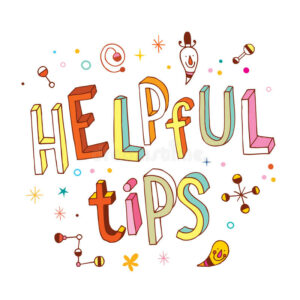Do you know what a restrictive eating disorder is? If not, you’re not alone. This little-known condition often goes undiagnosed because people don’t know how to recognize it. In this blog post, we will discuss the signs and symptoms of restrictive eating disorder, as well as treatment options. We hope that this information will help raise awareness about this serious condition and help those who are suffering get the treatment they need.
Contents
What Is A Restrictive Eating Disorder?
 A restrictive eating disorder is described as an eating disorder characterized by extremely restrictive eating habits. This can include cutting out entire food groups, severely limiting calories, and/or rigorously following specific diet rules or calorie quotas.
A restrictive eating disorder is described as an eating disorder characterized by extremely restrictive eating habits. This can include cutting out entire food groups, severely limiting calories, and/or rigorously following specific diet rules or calorie quotas.
People with restrictive eating disorders often have a distorted body image and may see themselves as overweight even when they are not. They may also be preoccupied with food and weight loss and may spend excessive time thinking about, planning for, or engaging in food-related behaviors.
This type of disorder can be extremely dangerous and even life-threatening. Because it involves such restrictive eating habits, it can lead to nutrient deficiencies, dehydration, and other serious health problems.
This is why if you or someone you know is struggling with a restrictive eating disorder, it’s important to seek professional help. Moreover, it’s important to understand that restrictive eating disorders are not simply a “phase” or “diet gone too far.”
They are real, serious, and require professional treatment. so, please reach out for help.
What Are The Symptoms Of Restrictive Eating Disorder?
There are a few key symptoms to look out for if you think someone might have a restrictive eating disorder. These include:
- Preoccupation with food and weight
- Intense fear of gaining weight
- A distorted body image
- Extremely restrictive eating habits
- Missing meals or only eating very small amounts
- Excessive exercise
- Extreme weight loss
The symptoms of a restrictive eating disorder can vary depending on the individual. However, if you notice any of the above signs in yourself or someone you know, it’s important to seek professional help.
In addition, people tend to believe a few myths about restrictive eating disorders. For example, many people think that only women can suffer from an eating disorder. However, this is not the case. Men and women of all ages and backgrounds can develop an eating disorder.
In fact, according to the National Eating Disorder Association, about one in every 200 men will suffer from an eating disorder at some point in their lives. So, if you think you might have a restrictive eating disorder, don’t hesitate to reach out for help.
What Are The Causes?
 When you hear the word “diet,” you may immediately think of weight loss. But not all diets are created equal. Some eating patterns can actually lead to weight gain, not loss. And in some cases, they can even be harmful.
When you hear the word “diet,” you may immediately think of weight loss. But not all diets are created equal. Some eating patterns can actually lead to weight gain, not loss. And in some cases, they can even be harmful.
And, in restrictive eating disorders, it is often the case that the individual has an intense fear of gaining weight. This may be accompanied by a distorted body image, meaning they see themselves as much larger than they actually are. As a result, they severely restrict their food intake in order to avoid putting on any weight.
There is no single cause of the restrictive eating disorder. Rather, it is thought to be the result of a combination of biological, psychological, and sociocultural factors. Let’s take a closer look at each of these factors.
Biological Factors
There is some evidence to suggest that there may be a genetic predisposition toward developing an eating disorder. This means that if someone in your family has an eating disorder, you may be more likely to develop one as well.
What’s more, people with restrictive eating disorders often have a history of dieting. This may be because they are more likely to be overweight or obese, which can lead to teasing and bullying from others. As a result, they may turn to diet as a way to control their weight.
Psychological Factors
People with restrictive eating disorders often have perfectionist tendencies. They may also be highly self-critical and have low self-esteem. They may also be more likely to experience anxiety and depression. In fact, these psychological factors may even play a role in the development of the eating disorder.
In addition, there have been studies that suggest a link between trauma and the development of an eating disorder. This is because people who have experienced trauma may be more likely to develop anxiety, depression, and low self-esteem. All of these factors can contribute to the development of an eating disorder.
Because people with other mental disorders might have insecurities and poor self-image, they may be more likely to develop an eating disorder as well.
Sociocultural Factors
There is a lot of pressure in our society to be thin. This is especially true for women, who are often expected to meet unrealistic standards of beauty. As a result, women may turn to diet as a way to control their weight. This can lead to a vicious cycle of yo-yo dieting, which can be very damaging to both physical and mental health.
However, in this day and age, men are also under pressure to have the “perfect” body. This can lead to restrictive eating disorders in men as well.
Other risk factors for restrictive eating disorder include:
- Having a family member with an eating disorder
- Being perfectionistic or having high standards for oneself
- Having a history of dieting or weight cycling
- Having a history of trauma or abuse
- Being a member of a minority group that is marginalized or discriminated against
So, these are some of the risk factors for developing a restrictive eating disorder. If you or someone you know is struggling with an eating disorder, please seek professional help. Eating disorders are serious mental illnesses that can be very difficult to overcome without treatment.
How Does It Impacts Life?
 The disorder is real and it impacts all areas of life, from work and school to social gatherings. There are various types of restrictive eating disorders, but they all share a commonality: an intense fear of gaining weight. And this fear holds several negative consequences in life. Some of these include:
The disorder is real and it impacts all areas of life, from work and school to social gatherings. There are various types of restrictive eating disorders, but they all share a commonality: an intense fear of gaining weight. And this fear holds several negative consequences in life. Some of these include:
Lead to other Mental Illness
People with restrictive eating disorders often develop other mental disorders. Because of the way the disorder changes brain chemistry, it can lead to conditions such as anxiety and depression. This happens because the body is deprived of the nutrients it needs to function properly. Also, in an eating disorder, you are constantly thinking about food which can lead to negative thoughts and mood swings.
Affects Physical Health
Of course, another impact of restrictive eating disorders is physical health. When the body isn’t getting enough food, it begins to shut down non-essential functions. This can lead to:
- hair loss,
- fatigue,
- irregular periods, and
- a host of other physical problems.
In severe cases, this can lead to serious health problems, including:
- malnutrition
- electrolyte imbalances
- heart failure
- organ failure
So restrictive eating disorder is not only a mental problem but also has physical consequences. In fact, these physical impacts are often what lead people to seek treatment.
Interferes with Daily Life
Another way restrictive eating disorders impact life is by interfering with daily activities. For instance, someone with anorexia might miss work or school because they’re too sick to go. Also, they may forego social activities with friends or family because they’re worried about what they will eat or how they will look. This can lead to feelings of isolation and loneliness. In fact, there are many emotional and physical symptoms of restrictive eating disorders that can make it difficult to live a normal, healthy life.
Isolation and loneliness
This is often one of the first things people with an eating disorder will start to experience. When someone is preoccupied with food and weight, they may start to withdraw from friends and family. This can be a result of feeling ashamed, embarrassed, or simply not wanting to be around people who are eating. As isolation increases, so does the risk of developing depression or anxiety. If you notice your loved one withdrawing, it’s important to reach out and offer support.
An obsession with food and weight
 People with restrictive eating disorders are often fixated on food. They may become obsessed with calorie counting, the nutritional content of foods, or even cooking and preparing meals. This can lead to spending hours thinking about food, planning meals, and shopping for groceries. For some people, this obsession can become all-consuming and take over their lives. So, it is important to be aware of the signs and symptoms of restrictive eating disorders.
People with restrictive eating disorders are often fixated on food. They may become obsessed with calorie counting, the nutritional content of foods, or even cooking and preparing meals. This can lead to spending hours thinking about food, planning meals, and shopping for groceries. For some people, this obsession can become all-consuming and take over their lives. So, it is important to be aware of the signs and symptoms of restrictive eating disorders.
Interfere with Relationships
This type of disorder can also interfere with your relationships. If you are constantly thinking about food, counting calories, or feeling guilty after eating, it can be hard to focus on anything else. This can lead to arguments with your partner or other loved ones. Moreover, your relationship with food can start to take over, and you may find yourself isolating yourself from social activities in order to focus on your diet. If you are struggling to maintain healthy relationships, it is important to reach out for help.
These are some of the ways that restrictive eating disorders can impact your life. If you are struggling with an eating disorder, please reach out for help. There is no shame in admitting that you need assistance and there are many resources available to you. Recovery is possible, and you deserve to live a happy and healthy life.
How To Treat Restrictive Eating Disorder?
When you identify that you or a loved one is struggling with a restrictive eating disorder, it’s important to seek professional help right away. This type of eating disorder can be difficult to overcome without the assistance of a qualified treatment team. So here are some of the best ways to treat restrictive eating disorders:
Cognitive-behavioral therapy (CBT)
CBT is a type of psychotherapy that can help you learn how to manage your thoughts, feelings, and behaviors. This form of therapy can also help you identify and change any negative thinking patterns or distorted beliefs that may be contributing to your eating disorder. It is believed that CBT can be an effective treatment for restrictive eating disorders because it can help address some of the underlying psychological factors that may be driving the disorder.
Interpersonal therapy (IPT)
IPT is a type of psychotherapy that focuses on your relationships with others and how they may be affecting your eating disorder. This form of therapy can help you learn how to communicate better, manage conflict, and set boundaries with others. Moreover, IPT can also help you develop a stronger support system for friends and family. It aims to help you feel better by improving your relationships.
Family-based therapy (FBT)
 FBT is a type of therapy that involves all members of your immediate family. This form of treatment focuses on helping you develop a healthy relationship with food and eating, as well as improving communication and problem-solving skills within your family.
FBT is a type of therapy that involves all members of your immediate family. This form of treatment focuses on helping you develop a healthy relationship with food and eating, as well as improving communication and problem-solving skills within your family.
FBT has been shown to be an effective treatment for restrictive eating disorders, especially in young people. In fact, research suggests that FBT is more effective than individual therapy for treating this type of eating disorder.
Medication
Medication is not a first-line treatment for restrictive eating disorders. But it may be recommended in some cases to help manage symptoms. Medication options include:
- antidepressants,
- antipsychotics, and
- mood stabilizers.
These medications can help with associated symptoms such as anxiety and depression. It’s important to work with a mental health professional to find the right medication and dosage for you. In addition, before starting any medication, be sure to talk to your doctor about the potential risks and side effects.
In fact, there are a few things you should keep in mind if you’re considering medication for your restrictive eating disorder. Such as:
- Remember that medication is not a complete cure.
- Keep in mind that it may take some time to find the right medication and dosage for you.
- Be sure to talk to your doctor about the potential risks and side effects
- Always keep communication open with your mental health professional
Support Groups
This is one of the most important things you can do for your recovery. Find an online or in-person support group. There, you will find people who understand what you are going through. You can also find helpful tips and tricks for dealing with your disorder.
There are several types of support groups that are led by different people. Some are peer-led, while others are led by professionals. There are also online support groups that you can join. The most important thing is to find a group that you feel comfortable with. If you do not feel comfortable with the group, you will not be able to open up. And get the help that you need.
So these are some of the things that you need to know about a restrictive eating disorder. If you or someone you know is struggling with this disorder, please seek help. There are many resources available to you. With the right help, you can recover from this disorder and live a happy and healthy life.
What Are Some Other Tips To Help?
 When you or a loved one is struggling with an eating disorder, it can be difficult to know how to help or where to turn. Here are some general tips:
When you or a loved one is struggling with an eating disorder, it can be difficult to know how to help or where to turn. Here are some general tips:
Educate yourself about eating disorders
This is the first and most important step. Eating disorders are complex illnesses with a range of causes and contributing factors. The more you understand eating disorders, the better equipped you will be to support your loved one. In fact, learning about the warning signs and symptoms of eating disorders can help you identify the problem early and get your loved ones the help they need.
Be supportive and understanding
Mental disorders are really difficult to deal with, and eating disorders can be especially tough. So it’s important to be supportive and understanding. Avoid judgment, and try to see things from your loved one’s perspective. This can be a really tough time for them, and they need all the support they can get.
Encourage healthy eating habits
You should also encourage your loved ones to eat healthy and nutritious meals. This can be a difficult task, but it’s important to try. Eating disorders can cause serious health problems, so it’s crucial to encourage healthy eating habits. Some of the healthy habits include:
- Eating regular meals and snacks
- Avoiding fad diets
- Exercising in moderation
- Limiting alcohol intake
- Getting enough sleep
- Reducing stress levels
Healthy habits are really essential for overall mental and physical well-being.
Encourage positive body image and self-acceptance
This is one of the most important things you can do for someone with a restrictive eating disorder. Help them to see their worth beyond their weight or appearance. Compliment them on their accomplishments, strengths, and qualities. Foster a positive environment at home and/or work. For example, avoid making comments about other people’s appearance or weight.
Challenge your negative thoughts
 Negative thoughts are a common symptom of a restrictive eating disorder. If you find yourself thinking “I’m not good enough,” “I’ll never be thin enough,” or “I don’t deserve to eat,” challenge those thoughts. Replace them with more positive, realistic ones. For example, “I am working hard to recover,” and “My body is healthy and strong.” Also, remind yourself that you deserve to recover and be happy.
Negative thoughts are a common symptom of a restrictive eating disorder. If you find yourself thinking “I’m not good enough,” “I’ll never be thin enough,” or “I don’t deserve to eat,” challenge those thoughts. Replace them with more positive, realistic ones. For example, “I am working hard to recover,” and “My body is healthy and strong.” Also, remind yourself that you deserve to recover and be happy.
So, these are some things to keep in mind if you or a loved one is struggling with a restrictive eating disorder. Remember, you are not alone and there is help available. If you need support, please reach out to a mental health professional. You should pay attention to your body and how you’re feeling. If you are showing signs of a restrictive eating disorder, please reach out for help.
Conclusion
To conclude, it is evident that restrictive eating disorder is a serious problem that should not be taken lightly. It can have detrimental effects on an individual’s physical and mental health. In fact, it tends to be a chronic condition with relapses being common. If you or someone you know is struggling with this disorder, please seek professional help as soon as possible.
You can also contact Mantra Care. The team of expert mental health professionals will be more than happy to provide you with guidance and support. Mantra Care provides mental health services around the globe at convenient and affordable prices. You can also book a therapy or download our free Android or iOS app.
In addition, Mantra Care has a registered dietitian to help you make the best food choices for your journey, as well as a team of highly qualified and certified personal trainers to help you recover from an eating disorder. Visit our website or give us a call today!


